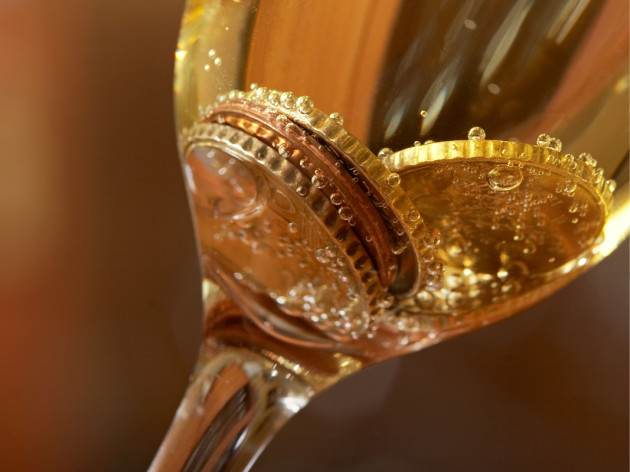
Sparkling resilient as alcohol sales decline across Europe
A new study undertaken by analyst firm IRI paints a troubling picture for the European beverage industry, albeit there are some encouraging signs that certain categories are 'recessionary resilient'.
According to IRI's bi-annual ‘FMCG Demand Signals’ report, there was a €2.7Bn (4%) decline in the sales of beer, wines and spirits in 2022. The data was collated from turnover recorded in European retailers (supermarkets, discounters, convenience stores and off-licenses) in six key markets: France, Germany, Holland, Italy, Spain and the UK.
In contrast, alcohol sales (by value) increased 12.6% in 2020, driven by consumer demand during the first year of the pandemic as people were confined to their homes and had virtually stopped eating and drinking at food service venues out of home. This added an extra €7.5bn to the off-trade alcohol sector bringing total category sales to €67.3bn.
“During 2021, as lockdown restrictions eased, sales effectively ‘returned to normal’. Although a marginal 0.7% value sales increase added €500mn to the category in Europe, this did not compare to the surge in 2020 and was an early indicator of unsustainable sales growth,” the report stated.
Ananda Roy, global senior vice president, Strategic Growth Insights, IRI, commented: “It is increasingly evident that underlying demand has changed in response to post-pandemic trends with new consumption patterns and choices impacting how the category grows over the next few years.”
She continued: “Alcohol brands are caught in a perfect storm with no end in sight. Alcohol sales tend to peak during a recession as consumers eat in instead of out. However, this recession is fuelled by a perfect storm of exceptionally high food and energy prices, record interest rate rises and anaemic wage growth. Households are having to make trade-offs to moderate its impact on their available income, prioritising food staples and small indulgent treats over discretionary items like Alcohol. Alcohol sales are now lower than pre-pandemic levels.”
Moreover, as the price of all groceries are predicted to remain high during 2023, IRI has forecast stagnation across the beverage sector, unless there is significant investment in “new products tailored to new consumer needs and consumption moments that make the category relevant again.”
Yet there are several green shoots of optimism that the trade can coalesce around. According to the report, “Sales of zero and low alcohol products in the UK reported a 3.7% growth in volume sales to five million litres in 2022 (compared to the previous year) which was a 15% decline in units as shoppers bought larger, more expensive packs.”
Meanwhile, value sales in 2022 grew 5.3% to £16 million. IRI predicts that with a greater variety of options available to shoppers, and space growing at the big supermarket chains, sales will increase this year, particularly as promotional events such as Dry January gain momentum.
“The No/Low category is not yet a revenue driver for major retailers in comparison to the total BWS category, but they are keen to support innovative ranges that are key to long-term growth and category dominance and as such are expanding their range and shelf space,” the report observed.
The robust nature of the sparkling wine market, however, will come as no surprise to members of the UK trade. Building on the momentum seen over the past decade, sales of Champagne and Prosecco remained resilient to the overall decline in alcohol sales in 2022, as consumers have redefined the range of occasions that call for a glass of fizz.
“Consumers may change the specific Champagne, Prosecco or sparkling wine brands they buy and where they buy them in order to achieve some cost savings,” added Roy.
“However, they still want a treat to mark special occasions even if this means purchasing Champagne and Prosecco at discounter chains rather than mainstream supermarkets. The switch to private labels brands in these specific segments is still in its infancy.”
RDTs are also staying strong against the turning tide in alcohol, while retailer private labels now account for 16.4% or £11bn of value sales for the category. IRI believes that retailers may focus on the zero and no alcohol trend to increase private label penetration, especially though collaborations with small and artisanal brands, as evidenced by Brewdog’s IPA collaboration with Aldi.
“Retailers are likely to raise prices in 2023, which may soften demand, particularly in the UK and Germany, where shoppers have been hardest hit by the cost-of-living crisis,” said Roy.
“When it comes to alcohol, strong brand equity usually keeps shoppers buying their favourite beer, wine and spirit brands. However, as prices rise we could also expect to see more people switching to private label brands as they do in other categories where they are perceived as good as national brands.”




